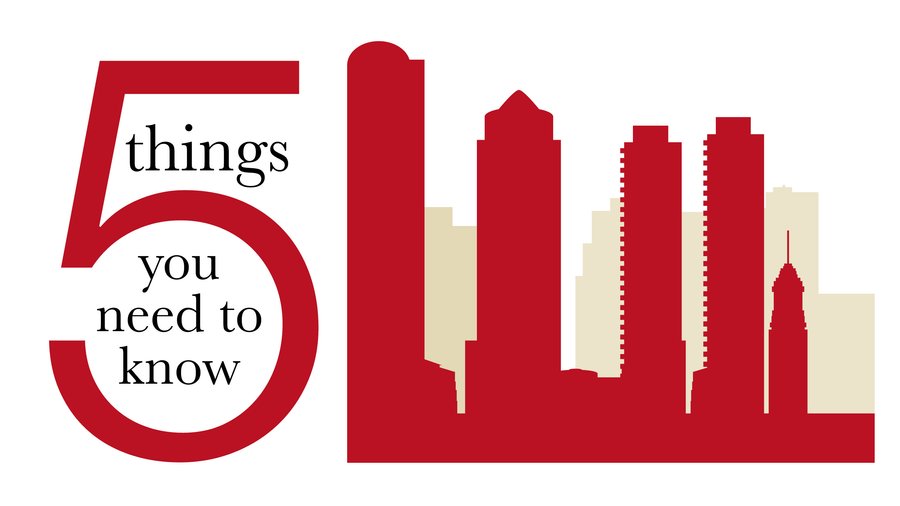Listen to this article 4 min
Good but rainy Tuesday morning, Boston. This is Managing Editor Don Seiffert with the five most important things you need to know, and a look at a controversial study earlier this year by an MIT professor on the differences between CEOs with and without MBAs.
Report: 1% of wealthy retirees will pay Ballot Question 1 surtax
The Massachusetts Budget and Policy Center said Monday that of the 400,000 Massachusetts taxpayers who received distributions from taxable retirement accounts in 2019, only 3,820 of them reported incomes of at least $1 million.
Wu reiterates plan to abolish BPDA
In a Q&A published Sunday in the New York Times magazine, Mayor Michelle Wu said once again that her plans to rethink how planning is done in Boston involves abolishing the Boston Planning and Development Agency and "reorient our systems and governments to focus on resiliency, equity and affordability."
Blue Cross is using AI to speed up prior authorizations
The state's largest health insurer said that in pilot over the past few months, the technology shortened average review time from nine days to less than one, reports Cassie McGrath.
Subscribe free to our twice-weekly TechFlash, BioFlash and Real Estate newsletters, all the news you need to know, and all free.
Bedford company aims to make breathalyzer to catch stoned drivers
A technology invented to protect astronauts on the International Space Station will now be used to detect THC as a breathalyzer device, thanks to a new partnership between Draper and Vox Biomedical, reports Rowan Walrath.
Baker administration spells out approach to 62F tax relief
On Friday, the state said that a decades-old regulation governing how $3 billion in excess state revenue will be paid back to taxpayers had officially been repealed "because it is out-of-date."
What else you need to know
By the numbers
- 12 — Number of stories proposed for yet another lab-and-office building at the Boynton Yards mixed-use development near Somerville’s Union Square, where developers have already opened one lab building and are well underway in construction on a second.
- 20 — Number of drivers arrested Monday while on strike at the Sysco Boston warehouse in Plympton after a clash with law enforcement.
- 13 — Number of communities that have now joined the Bluebikes network, including two new recent additions.
This day in history
On this day in 1786, Malden's selectmen auctioned off a woman, Mary Degresha, who was unable to support herself. She went to the lowest bidder, who agreed to accept payment of six dollars a week for housing and "taking proper care" of her. For two centuries, Massachusetts towns were responsible for supporting those who could not support themselves, according to MassMoments.org.
Do more MBAs mean lower wages?
Massachusetts has the highest percentage of college graduates of any state — 52% — as well as the highest percentage of graduate or professional degree-holders: 20%. In other words, the Boston area is likely one of the world's capitals for the production of graduates who hold a masters in business administration, or MBA.
But, you may ask, is that a good thing?
A study published earlier this year suggests that MBAs have at least one business-related skill down pat: Reducing the wages of their employees. I first heard about this through one of my favorite podcasts, Freakonomics, and was intrigued to hear the one of the main authors, economics professor Daron Acemoglu, is from MIT.
The paper, published under the obscure title of "Eclipse of Rent-Sharing: The Effects of Managers' Business Education on Wages and the Labor Share in the US and Denmark," found that "within five years of the appointment of a (MBA-holding) business manager, wages decline by 6% and the labor share by 5 percentage points in the US, and by 3% and 3 percentage points in Denmark." The upshot, the study finds, is that non-MBAs tend to share profits with employees more often than MBAs do.
It's a controversial stance, and not everyone is convinced. Ann Harrison, an economist at Berkeley Haas, was quoted in the podcast saying: "If you look at the data in this paper, what I think is actually going on is that there’s been this enormous shift towards ... an economy that’s replacing low-skilled workers with machines, and companies have struggled. And as they’ve struggled, they’ve made changes to their leadership, which is trying to avoid making things worse. More and more are business-school-trained CEOs."
As with any scientific finding, the results probably need to be looked at in other ways by other economists to confirm or refute the idea that CEOs who hold MBAs are stingier with pay. But if the emphasis in business school is on maximizing profits at the expense of employees, maybe we ought to rethink what we teach in MBA degree programs.
Total MBA enrollment as of Fall 2021
| Rank | Prior Rank | School/Prior rank (*unranked in 2021)/ |
|---|---|---|
1 | 3 | Boston University (Questrom School of Business) |
2 | 1 | Harvard Business School |
3 | 2 | University of Massachusetts Amherst (Isenberg School of Management) |





